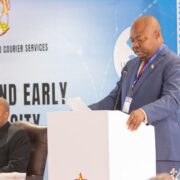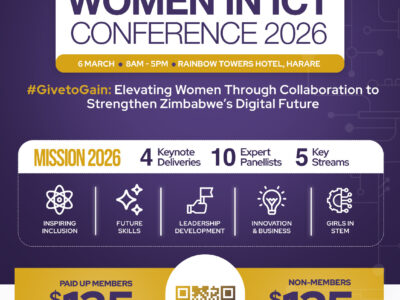Zimbabwe is accelerating its digital transformation agenda with the commissioning of the Mawabeni Digital Centre in Matabeleland South Province, a facility set to expand access to technology, digital skills, and online services for rural communities.
Officially opened by Hon Tatenda Mavetera, Minister of Information Communication Technology, Postal and Courier Services, the centre is a testament to government’s commitment to ensure that every Zimbabwean has a stake in the digital economy.
Deep down in Esgodini, a seperately constructed Community Digital Centre will switch on and connect the rural of community of Umzingwane.
The launch follows the commissioning of another Digital Centre in Tshelanyemba just a day earlier, signalling a nationwide rollout of modern facilities designed to connect rural communities with knowledge, markets, and essential services. “Yesterday, Tshelanyemba; today, Mawabeni, and tomorrow, more communities across Zimbabwe,” said Mavetera. “Together, we are building a country where digital opportunity reaches every homestead, every school, and every business.”
More than a building, the Mawabeni Digital Centre is an investment in broadband access, e-learning, e-commerce, and e-government platforms. “The concept of Digital Centres extends beyond just physical structures and technology,” Mavetera explained. “It embodies the vision of providing rural communities such as Mawabeni with the opportunity to engage in the digital world on equal footing with urban areas.”
The centre is tailored to meet practical needs: students can use it as a limitless library, farmers can track prices and buyers online, entrepreneurs can showcase and sell products through digital platforms, and families can access health information, government documents, and financial services without long and costly trips to urban centres. “This centre is living proof of our commitment,” said the minister. “It means that the digital economy is no longer something happening elsewhere—it is happening right here in Mawabeni.”
The transition from Community Information Centres to Digital Centres reflects a sharper focus on future readiness. “This new name reflects our commitment to embracing the future, where technology plays a crucial role in enhancing various aspects of life,” Mavetera said. “The term ‘digital’ emphasises our focus on integrating technology into learning, agriculture, healthcare, trade, and governance, ultimately supporting growth and innovation in these essential areas.”
These centres are also connected to national digital transformation programmes. The Digital Skills Ambassadors Programme is training young people to work directly with communities in building ICT competencies, while the 1.5 Million Coders Programme is preparing a new generation of developers to drive homegrown innovation. “The Mawabeni Digital Centre is not an isolated project—it is a launchpad that connects directly to these national programmes,” the minister noted.
Closing her address, Mavetera called on the Mawabeni community to take full advantage of the facility. “Do not let it gather dust—let it shine as a beacon of opportunity,” she urged. By challenging learners, farmers, entrepreneurs, and young innovators to make the most of the centre, she underscored that its success will depend on active community participation.
The commissioning of Mawabeni marks another step toward Zimbabwe’s Vision 2030, which envisions the nation as an upper-middle-income society powered by technology and inclusive development. It is a clear signal that digital access in Zimbabwe is no longer a privilege for the few, but a right for all—built, community by community, with no one and no place left behind.














Comments